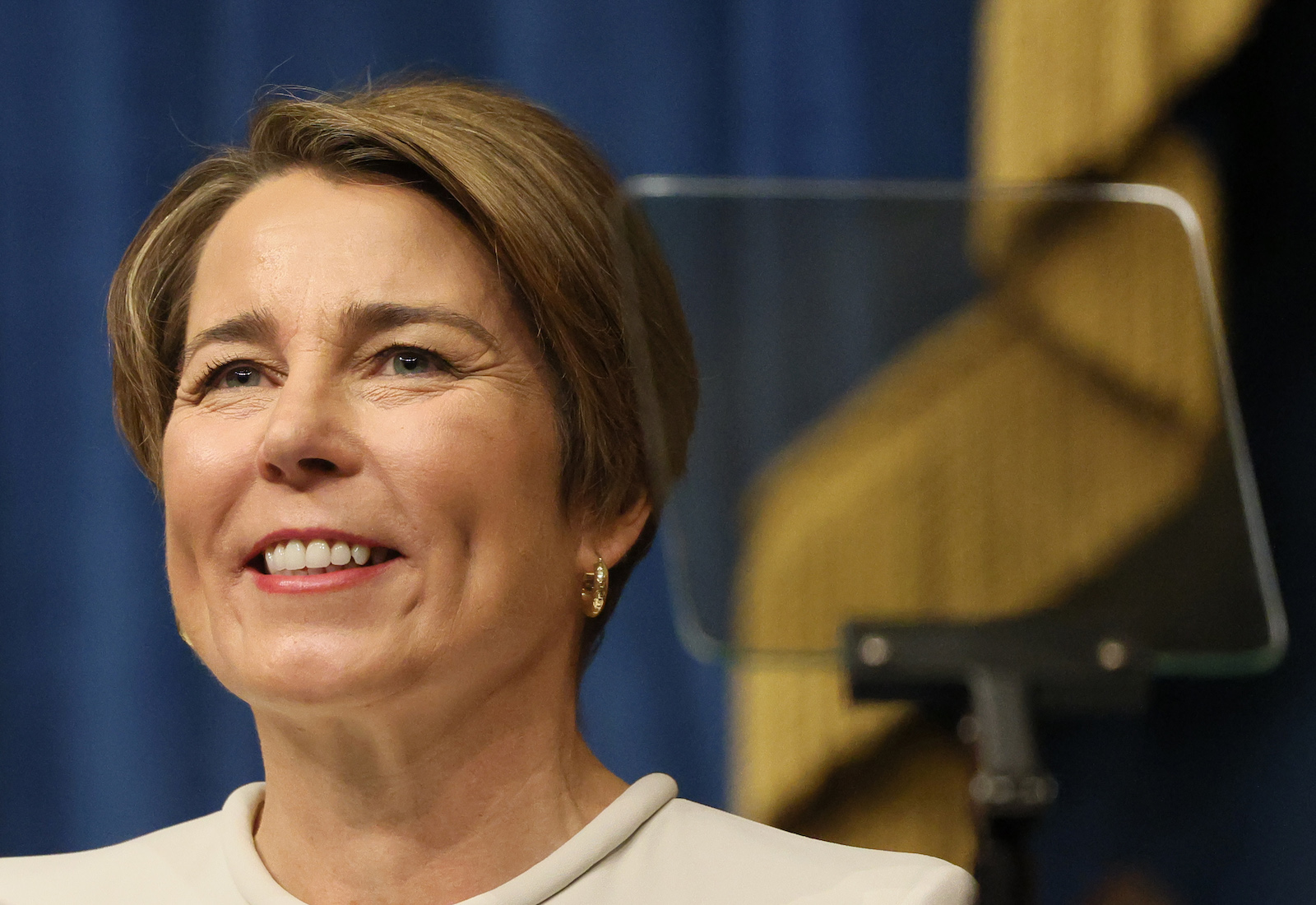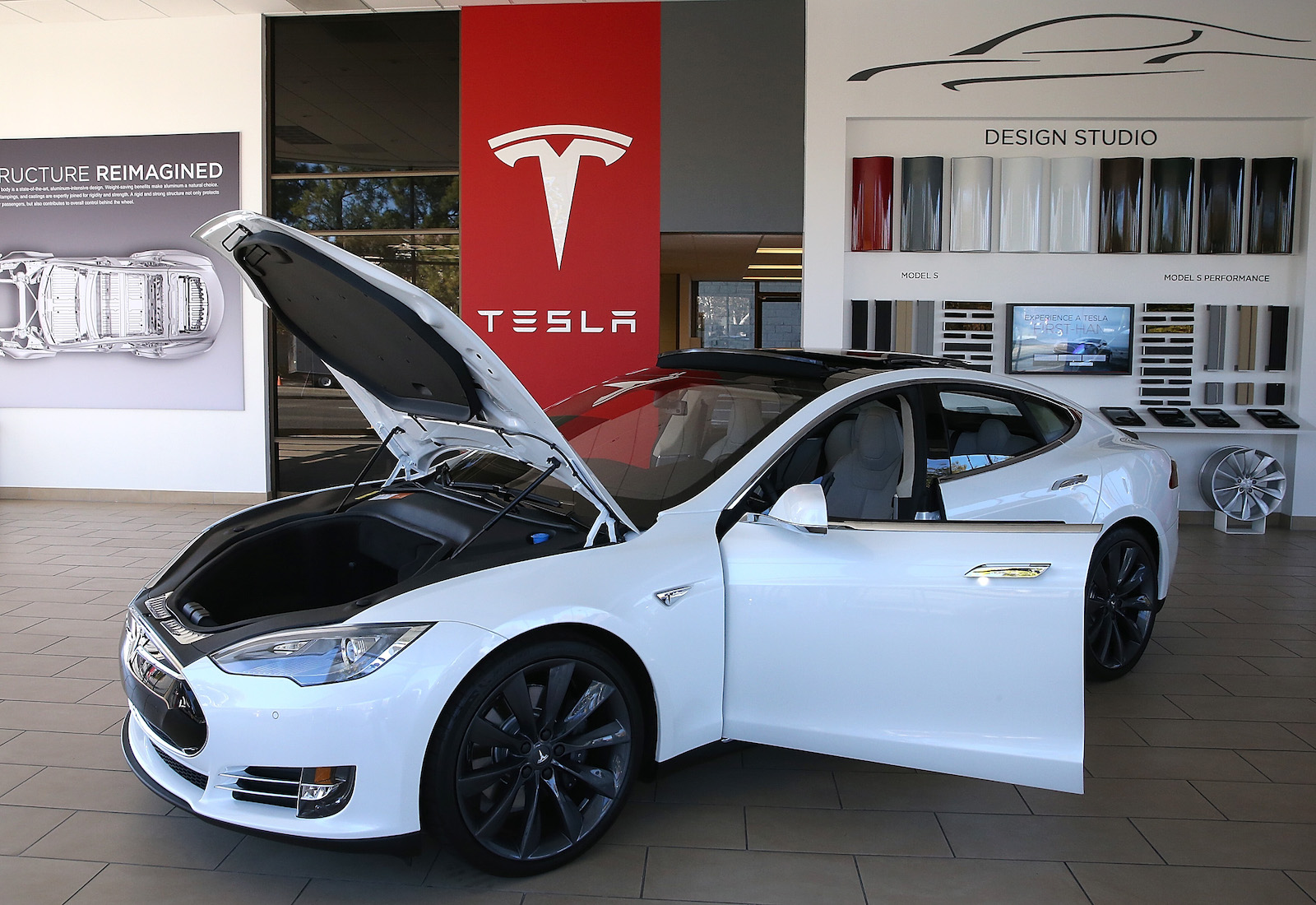A Massachusetts law protected the right to repair your own car. Automakers sued.
In 2013, long before there was a countrywide campaign pressuring Major Tech to make it much easier for people today to take care of their smartphones, Massachusetts passed a regulation explicitly giving individuals the appropriate to repair their cars. Now, that proper is less than danger. A pending federal lawsuit could make a decision its fate — and in so performing, change the auto maintenance landscape at a time when autos increasingly resemble large computer systems.
The lawsuit in issue, Alliance for Automotive Innovation v. Maura Healey, problems a ballot measure Bay Condition voters overwhelmingly authorised in 2020. That so-named Info Access Law necessitates that automakers grant auto entrepreneurs and impartial restore outlets obtain to car “telematics,” facts that autos transmit wirelessly to the manufacturer. Proponents of the legislation say supplying owners command in excess of this details will support level the playing discipline for automobile mend as the computerization and electrification of cars and trucks create new problems for independent shops. Not executing so could give producers a aggressive benefit above repair, a single that buyer advocates concern will lead to much less choices, higher price ranges, and in the long run, vehicles receiving junked more rapidly.
Which is a issue not just for drivers’ pocketbooks, but for the climate. Producing vehicles generates considerable emissions — and will deliver even extra as automakers proceed to scale up electric motor vehicle producing, which is specially carbon intensive due the vitality demanded to make the battery. In get to experience the full weather rewards of these autos, buyers want to generate them as long as possible. To do so, they need obtain to practical, cost-effective restore alternatives.
While the law was hailed a main victory for the ideal-to-restore movement when it passed at the ballot box, automakers — represented by an field group called the Alliance for Automotive Innovation — instantly sued the point out to block its implementation. The two sides have been duking it out in federal court ever due to the fact, with the judge overseeing the case delaying his ruling for more than a yr. No one is aware of when a closing resolve will be produced or which side will prevail. But for automakers and the car maintenance organization alike, the stakes are superior.
“We’re at a juncture in the road,” Paul Roberts, founder of securepairs.org and editor of the Combat to Mend e-newsletter, explained to Grist. “We’re in the posture of looking at independent automobile repair service go the way of Tv set and camera mend. Which is, they do not exist anymore.”

Today’s unbiased auto maintenance marketplace owes its existence in massive aspect to the vehicle appropriate-to-fix legislation that Massachusetts handed in 2013. That law granted unbiased mechanics entry to the identical diagnostic and repair data manufacturers deliver to their franchised dealerships through a regular in-car or truck port also made use of for car emissions testing. But it explicitly excluded telematic knowledge.
That is starting to be a trouble as vehicles turn out to be much more computerized. Nowadays, numerous car sections comprise chips that monitor their condition of overall health and talk with the rest of the automobile with out the capacity to wirelessly send out commands to these pieces, impartial automobile shops are locating them selves not able to diagnose troubles and conduct repairs. At the exact time, newer cars and trucks will usually beam knowledge on their condition of overall health instantly again to the maker. That producer can then send the automobile operator updates when it’s time for plan upkeep — alongside with a suggestion that they go to their nearest franchised dealership to get the work carried out.
“If my battery’s small, if I want an oil modify, if my headlights or taillights are out … this is all diagnostic info that’s being transmitted back to producers,” claimed Tom Tucker, the senior director for point out affairs at the Auto Care Affiliation, which signifies the nationwide independent automobile maintenance business. “They’re then transmitting that info to franchised dealerships, which are then speaking to the buyer. That’s excellent for field, but it puts independents at a competitive disadvantage.”
The 2020 Details Accessibility Regulation sought to take out manufacturers’ gain by demanding that automakers make any mechanical knowledge emanating from a car right accessible to the owner and independent fix stores through a regular, open-entry platform.
Tucker’s group, which served craft the ballot initiative, hoped that automakers and the mend marketplace would finally arrive to a nationwide agreement over telematic information sharing, which is what happened soon after Massachusetts handed its initially auto proper-to-maintenance law in 2013.
In its place, automakers took the state’s attorney common to courtroom to problem the validity of the ballot initiative, claiming that creating this information a lot more obtainable would degrade motor vehicle cybersecurity. By giving car or truck house owners and independent repair service retailers accessibility to telematics, carmakers declare, the Details Accessibility Law runs afoul of federal protection polices and the federal Motor Car Security Act. Carmakers also declare the law conflicts with the Cleanse Air Act, since it could make it less difficult for a car operator to disable emissions control systems on an engine.
Previous Massachusetts Attorney Common Maura Healey (who took over as governor of the condition in January) believes this is a load of malarkey. For the Facts Accessibility Law to conflict with federal legislation, automakers need to establish that there is no attainable way each sets of legal guidelines can be fulfilled — which they have not done, Healey argues. In truth, an October 2021 investigation by her business office discovered that a single member of the Alliance for Automotive Innovation, Subaru, was previously employing a stopgap evaluate to comply with the 2020 law — disabling all telematics methods in design yr 2022 cars offered in Massachusetts, thereby ensuring that franchised dealerships and the company really do not have entry to any information and facts that unbiased shops lack. Subaru did so without violating any motor auto protection standards or the Clean up Air Act. More investigation disclosed that carmaker Kia applied a very similar policy.
The Alliance’s argument that growing access to telematic info helps make hacking far more very likely rests on the notion that secrecy is the very best way to continue to keep devices safe. But a lot of cybersecurity industry experts believe this premise — recognised as “security by obscurity” — is basically flawed, states Kit Walsh, a senior staff attorney at the Electronic Frontier Foundation, a digital legal rights advocacy firm. When data systems facts are held secret from the community, Walsh claims, “you do not get the advantage of people smarter than you wanting at them and finding vulnerabilities that you do not discover yourself.” Roberts of securepairs.org agrees, describing stability by obscurity as a “false premise.”
“We’re seeing connected motor vehicle hacks remaining correct and middle,” Roberts stated, citing a just lately learned bug in Sirius XM telematics programs that allowed hackers to remotely hijack automobiles from quite a few big brands. “What does that say about [automakers’] procedure for vetting the protection units? It does not say superior issues.”
The Alliance for Automotive Innovation and the condition of Massachusetts introduced their arguments at a trial in July 2021. Whilst U.S. District Decide Douglas Woodlock was to begin with expected to difficulty a decision on the scenario soon thereafter, he has regularly delayed his ruling for causes ranging from new evidence to scheduling issues to most likely applicable Supreme Court docket rulings. Walsh suspects Woodlock is continuing cautiously in purchase to “insulate himself for the inescapable appeal” from whichever side loses. Roberts agrees.
“I assume he’s quite conscious of the simple fact that this final decision is not gonna be the finish of the highway,” Roberts reported.
As the authorized battle about vehicle facts rages on in Massachusetts, other states are weighing comparable measures to safeguard unbiased car repair. In Maine, a approximately identical car telematics ballot evaluate is at this time taking condition and tentatively slated to be place before voters later on this year. And carmakers are previously gearing up to battle it.
In response to a ask for for comment, the Alliance for Automotive Innovation shared a memo with Grist calling the Maine ballot initiative a “monetizable data grab from nationwide aftermarket pieces manufacturers” that produces a “clear cybersecurity chance.” The memo goes on to assert that neither the enhanced connectivity of vehicles nor the changeover to electric powered autos will undermine the availability of mend information for independents.

But some mechanics who operate on EVs experience differently. That emissions tests port that repair service professionals are meant to be equipped to use to access diagnostic and maintenance information? Most Teslas absence it, states Rich Benoit, who co-founded the Tesla-concentrated repair small business Electrified Garage. Even when Teslas do have the port, Benoit states, “there is no valuable facts whatsoever” an unbiased mechanic can retrieve from it. “Which is why 99 {49e09b23eae7466ccc7574c19ebb3019301c9a11d2999feff81a3526451546a5} of Teslas go again to Tesla for maintenance,” Benoit claimed.
The outcome, Benoit states, is Tesla homeowners are typically quoted steep costs to exchange batteries that might be fixable for much less expensive. Changing these batteries early noticeably lowers the environmental added benefits of EVs, given that mining the metals inside of them generates pollution and carbon emissions. Tesla dismantled its community relations section in 2019 and no extended responds to journalists’ requests for comment.
Benoit sees Tesla’s success in controlling motor vehicle information and its repair service ecosystem as a bellwether of what’s coming for car proprietors a lot more broadly if the Information Entry Regulation is struck down in court.
“If which is the situation, at this place, all new cars and trucks are gonna have to go back again to the dealership,” Benoit informed Grist. “With dealerships there’s no levels of competition, they set costs, and they can form of do regardless of what they want.”









